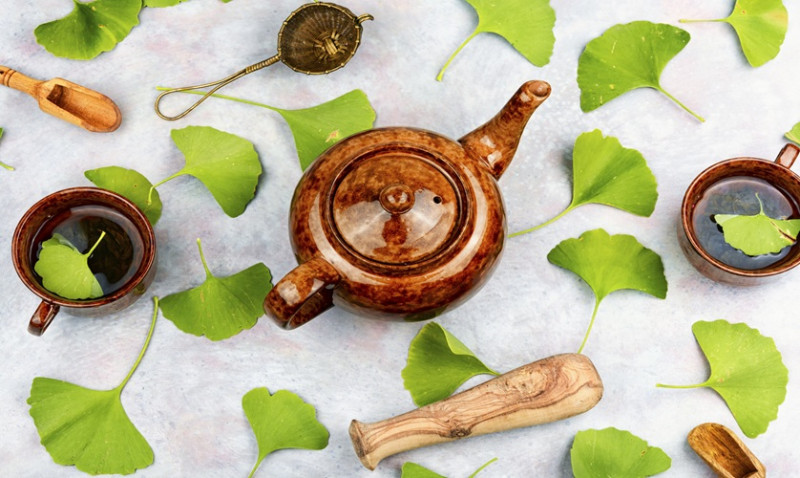
Homeopathy often finds itself at the center of heated debates, especially when considering its effectiveness and legitimacy as a medical treatment. Some hail it as a holistic alternative to modern pharmaceuticals, claiming it provides relief with natural substances. Others, however, argue that homeopathy operates as a placebo, offering only psychological comfort rather than physiological change. In this post, we'll examine the science and skepticism behind homeopathy, particularly focusing on its classification as a placebo. If you're a homeowner in the UK, an interior designer, or a tradesperson keen to explore wellness trends that may shape today's interior and lifestyle choices, understanding the truth about homeopathy can help you make informed decisions.
What is Homeopathy?
Homeopathy is a system of alternative medicine developed in the late 18th century by German physician Samuel Hahnemann. It’s based on two core principles: "like cures like" and the "law of infinitesimals." The idea is that a substance that causes symptoms in a healthy person could, when highly diluted, treat those same symptoms in someone who is ill.
Homeopathic remedies are made by repeatedly diluting a substance in water or alcohol, then shaking the solution vigorously – a process called succussion. The resulting solution is often so diluted that not even a single molecule of the original substance remains. Despite this, homeopaths believe the solution retains a ‘memory’ of the substance and that this memory can encourage the body to heal itself.
In the UK, homeopathy is practiced by both private practitioners and some NHS services, although its widespread endorsement has significantly diminished in recent years due to growing scientific critique.
The appeal of homeopathy lies in its natural ingredients, low risk of side effects, and the personalised nature of consultations. For many, just the experience of being listened to and advised on a one-to-one basis makes them feel cared for and more hopeful.
The Placebo Effect – A Powerful Psychological Tool
The placebo effect refers to a beneficial response to a treatment that arises not from the treatment itself, but from the patient's belief in its efficacy. In the context of homeopathy, the placebo effect is often seen as the main driver behind any perceived improvement in health.
Numerous scientific studies and systematic reviews have indicated that homeopathic remedies perform no better than placebos. This means that while patients may feel better after taking homeopathic medicine, the improvement is likely due to their expectations, rather than the treatment itself having a direct physiological impact.
In clinical trials, double-blind and placebo-controlled methods are used to test drug efficacy. On this level, homeopathy consistently fails to show significant benefits over sugar pills or other inert substances. The psychological comfort of receiving any form of treatment can be incredibly effective, especially for conditions influenced by mental state, such as chronic pain, fatigue, or stress-related symptoms.
This does not mean that patients who feel better from homeopathy were wrong to seek that help—it highlights the importance of the mind-body connection in healthcare. However, it does raise ethical questions, particularly when homeopathy is used in place of proven medical treatments.
Scientific Consensus on Homeopathy
Many reputable health organisations have published reviews of homeopathy's efficacy. In the UK, the NHS stopped funding homeopathic treatments in 2017, stating that there is no “robust evidence” to support its effectiveness. Similarly, the UK Parliamentary Science and Technology Committee concluded that homeopathy is no more effective than a placebo.
Beyond national policy, leading global health authorities such as the World Health Organization have warned against using homeopathy in place of conventional treatment, particularly for serious conditions like malaria, HIV, or cancer.
Despite this, some remain devoted to homeopathy, often citing personal success stories. While anecdotal evidence can be emotionally persuasive, it lacks the scientific rigor required to establish true cause and effect.
For architects, interior designers, and DIY enthusiasts interested in wellness-focused home design, it's important to separate proven health practices from pseudoscientific trends. Incorporating wellness into your living space doesn't require unverified remedies – strategies like improving air quality, using natural light, and integrating biophilic design have measurable benefits for wellbeing.
Why People Still Use Homeopathy
Understanding why people continue to use homeopathy, especially when mainstream science discredits it, adds context to its ongoing popularity. One major reason is dissatisfaction with conventional medicine. Long wait times, impersonal appointments, or unresolved symptoms can drive individuals to seek alternative routes.
Homeopathic consultations tend to be longer and more personal than typical doctor visits. Practitioners often spend significant time understanding patients' lifestyles, habits, and stresses. This attention itself can lead to improved mental well-being and reduced stress, which in turn can alleviate some physical symptoms.
Another factor is the 'natural' appeal. In an increasingly chemical-sceptical society, particularly among young professionals and health-conscious homeowners, treatments that avoid synthetic drugs are highly attractive. The trend towards eco-conscious, minimalist, and toxin-free living naturally aligns with the ethos of homeopathy, even if the underlying science doesn’t hold up under scrutiny.
Lastly, cultural and generational beliefs also influence health choices. When a remedy is passed down through family tradition or is endorsed by trusted community voices, it gains a sense of legitimacy, regardless of scientific evidence.
Risks of Using Homeopathy Instead of Conventional Medicine
While homeopathy is relatively harmless physically—since the remedies are so diluted—it can carry significant risks when used in place of medically necessary treatments. Serious conditions require evidence-based interventions. Delaying or forgoing effective treatments in favour of homeopathy can lead to disease progression or complications.
In the DIY home and professional trade industries, physical health and energy levels are crucial. Whether you're renovating your own kitchen or managing multiple projects as a designer or contractor, untreated conditions can have severe personal and professional consequences.
This makes it important to critically assess your health choices. While exploring wellness trends is worthwhile, they should never replace validated medical advice. Balance is key: incorporate nature-inspired wellness in your environment while relying on proven science for your physical health.
Alternatives That Are Proven to Work
If you’re seeking holistic ways to improve your health or design a wellness-oriented home, there are plenty of options supported by research. Here’s a quick overview:
| Strategy | Evidence-Based Benefits |
|---|---|
| Mindfulness & Meditation | Reduces anxiety, depression, and improves overall mental well-being |
| Exercise | Improves cardiovascular, mental health and boosts energy levels |
| Healthy Diet | Supports immune function, mental clarity, and long-term wellness |
| Biophilic Design | Enhances mood, reduces stress, and improves productivity |
| Sleep Optimization | Promotes physical repair, mental focus, and emotional resilience |
Incorporating these elements into your lifestyle or home design nurtures well-being without relying on unverified treatments. For example, creating well-ventilated rooms with lots of natural light can improve productivity and mood — especially relevant for home offices and lifestyle-minded professionals.
Conclusion: Be Curious But Cautious
Homeopathy continues to thrive, not because of scientific validation, but because of the power of belief, personal attention, and cultural familiarity. While it may function effectively as a placebo for some individuals, it’s crucial to approach it with a critical eye, especially when health outcomes are on the line.
If you're exploring ways to enhance your wellbeing or create a healthier living space, lean into methods that compliment science and sustainability. For busy professionals, tradesmen, and creatives working in the home improvement and design sectors, understanding the landscape of alternative wellness helps shape more conscious, practical choices — both personally and professionally.
Curious about other wellness and lifestyle trends involving your home? Stay tuned to our blog for science-backed design insights and practical tips as you redecorate, renovate, or build a better living environment for the future.





